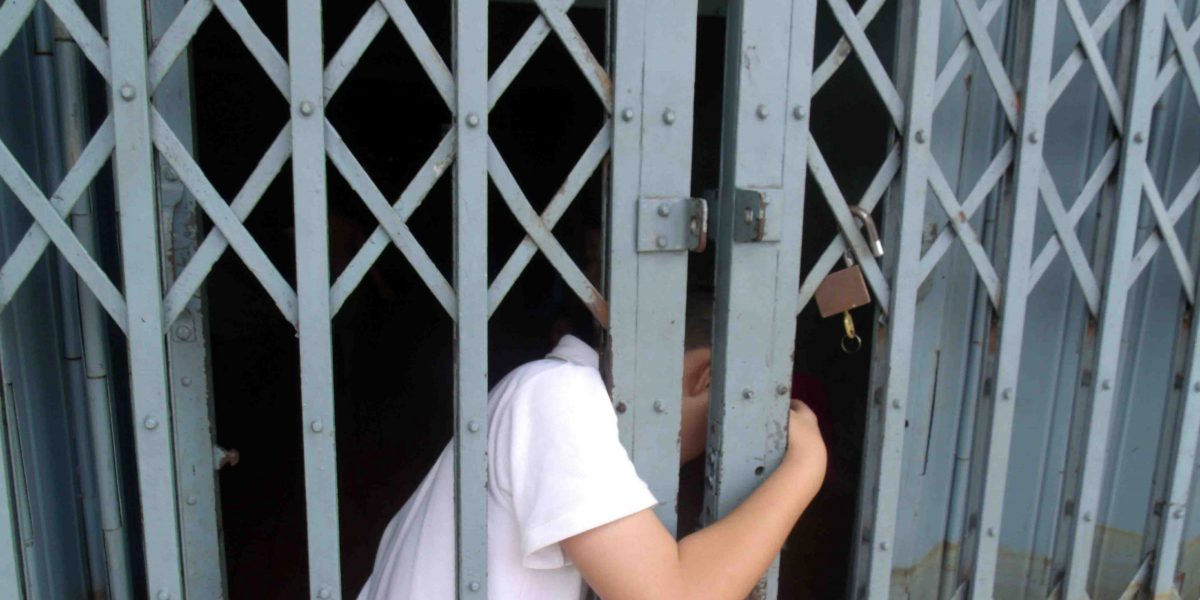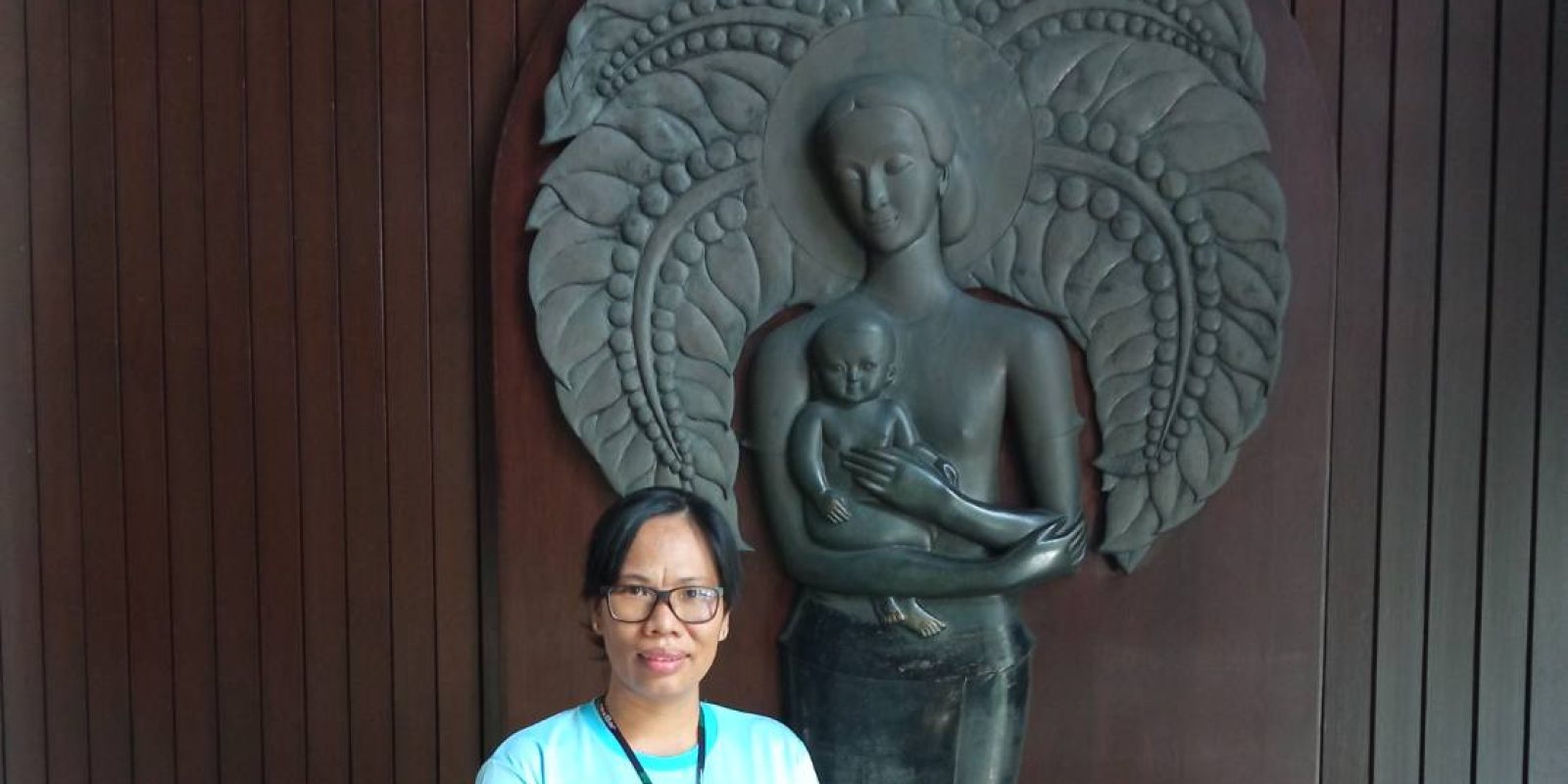Thailand: fleeing to fear and isolation
14 May 2014|Angela Wells

Bangkok, 28 April 2014 – A padlocked gate separates three Vietnamese Hmong families in their Bangkok apartment from the rest of the sprawling city. The children rarely leave to play in the fresh air.
.
Their parents fear if they step out the front door they could be arrested for not having a legal Thai visa or, worse, deported back to Vietnam, where they could face the reality of the brutal persecution which triggered their initial escape.
.
One of the fathers, Bao*, is a community leader of Hmong families living in Bangkok and a human rights advocate for those still in Vietnam. While he is physically small and soft-spoken, his message and mission is clear: to document the abuses against his community members in Vietnam (via internet communication) and to help his fellow Hmong stay safe in Bangkok. He has refused to let fear silence him.
.
Fear-induced isolation. The Jesuit Refugee Service estimates there are 7,000 registered refugees and asylum seekers struggling to survive in Bangkok, often spread out with little means of community interaction. The Vietnamese Hmong are one of the 40 nationality groups seeking asylum in the Thai capital.
.
Since Thailand has not signed the 1951 UN refugee convention, refugees are classified as “undocumented migrants” and risk being subjected to indefinite detention if found. Forced to hide from the police, they are often unable to reach out for assistance or socialise safely with their communities.
.
“People fear that Vietnamese government informers in Bangkok will identify them and report on their whereabouts. Members of the (Hmong) community are at times stopped in public places, such as shops, by strangers who speak Vietnamese asking questions about their family, and about where and why they live here”, said Kristen Burns, a social worker on placement with JRS Thailand in 2013.
.
Bao knows of two dozen Vietnamese Hmong held in the immigration detention centre in Bangkok, one of whom is an ill woman and more than 10 of whom are children. Incidences like these actively deter families, like those living in Bao’s apartment, from integrating into Thai society.
.
“We try not to go outside. We keep our gate locked so the police won’t know where we are”, said Bao on a home visit with JRS staff.
.
Escape from a harsh past. According to JRS Thailand Urban Refugee Programme staff, at least 300 refugees from Vietnam live in Bangkok. The isolation they experience in a city of nearly seven million people is the trade-off for living free from the persecution they faced in Vietnam.
.
Hmong people have been fleeing persecution in Vietnam since the early 1970s, in the aftermath of the Vietnamese War. In January 2012 the Vietnam Committee on Human Rights documented several mass arrests, murders, harassment and torture by the police, local authorities and militias toward ethnic minorities on the basis of religious beliefs, especially of the Hmong in the Northern Highlands of Vietnam.
.
“Many Hmong have been driven out of their ancestral lands and forced to recant their faith”, reports the Vietnam Committee on Human Rights.
.
Bao has shared similar stories of persecution with JRS personnel.
.
“A few months ago a group from my community held a demonstration in Mun Yee, Vietnam, in order to express their need for freedom of religion and an end to ethnic discrimination. They were threatened by the Vietnamese government”, said Bao.
.
According to Bao, after receiving death threats, many Hmong fled the country and 66 were arbitrarily arrested in Laos, including children. Their whereabouts remain unknown.
.
A place to congregate. The JRS-supported Vietnamese Hmong community centre – which opened in July 2013 in Bangkok – acts a place where Hmong people can come together and hold religious services and community meetings in their native language.
.
In addition to financial support for rent, JRS offered educational courses at the centre in 2013. At the request of the community, a 12-week English course was available for two and a half hours per week for approximately 35 students. This course aimed at helping equip adult refugees, denied the legal right to work, find employment in the informal economy.
.
In early 2014, JRS carried out a needs assessment with the Hmong community to see what activities carried out at the community centre they considered would achieve the greatest benefit for themselves and their families They identified Thai language and basic computer courses as a priority. They believed these courses would better prepare Hmong children enroll in public schools in Thailand. JRS is currently in the process of finding volunteer staff to implement these classes.
.
Durable solutions are vital. Unfortunately, long-term durable solutions for Hmong refugees in Thailand are few and far between. According to Ms Burns, their asylum applications are consistently denied, eliminating the opportunity of being resettled and/or obtaining financial or medical support from the agency.
.
While they have the right to claim asylum, many Hmong families in Bangkok have been denied refugee status despite having valid fears of persecution if returned home. In fact, JRS is only aware of one Vietnamese Hmong person who has been recognised as a refugee in Thailand. They have been frequently told that it is safe for Hmong to return home.
.
In many cases, identical letters were sent to reject their claims, with only the name of the applicant changed. These very brief letters vaguely rely on ‘country of origin information’ that is not cited or provided. So, many of the Hmong do not know the basis on which their claims were rejected, making appeals even more difficult.
.
Officially, those whose applications are successful are eligible to be resettled in other countries, but are not allowed to remain in Thailand.
.
It can take years to become recognised, and even that does not guarantee another country will accept them for resettlement. So Thailand becomes a limbo for many people who slip through bureaucratic cracks.
.
“They (all refugees) are considered to be illegal immigrants regardless of what stage they are at in the refugee status determination process. Any time they leave their homes they are taking a risk of encountering police and being indefinitely detained. Raids also take place within residences. Security is not ensured”, said Burns.
.
International protection has proven elusive for the Vietnamese Hmong due to the political stance on their cases. Gaining refugee status and a chance of resettlement is currently the only durable solution available to them. Without pathways to citizenship or the promise of safety in their home country, the Hmong will continue to live in insecurity, whether in Thailand or Vietnam.
.
*Names have been changed for reasons of security.
Angela Wells, JRS International Communications Assistant


